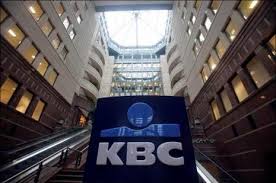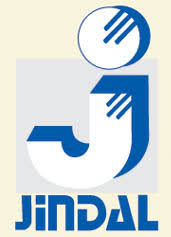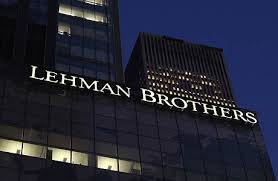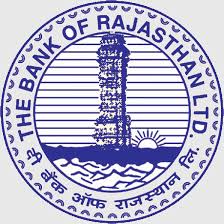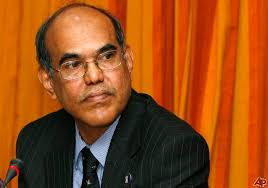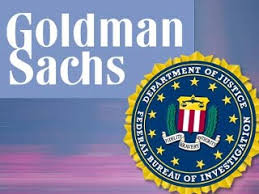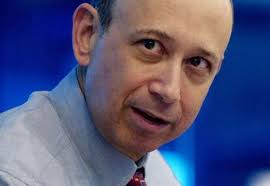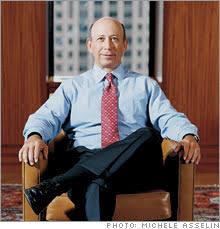
Source:Bloomberg:May 21, 2010, 12:56 AM EDT
It would change the way banks manage their balance sheets, hedge their interest-rate bets and invest their proceeds. It would chip away at the secrecy of the Federal Reserve, create a council of regulators and make it easier for investors to sue credit raters. It would cut the fees debit-card issuers collect from merchants.
Senator Christopher Dodd, the Connecticut Democrat who shepherded the legislation as chairman of the Banking Committee, said: “Any one of these sections of the bill could stand almost as a piece of landmark legislation in and of themselves.”
Wall Street has a different view. The Senate bill’s provisions could cut the profits of the largest U.S. banks by 13 percent, Goldman Sachs Group Inc. said in a May 17 report. The biggest impact would come from stricter rules on derivatives and the powers of a new consumer agency to write regulations affecting mortgage fees and other financial products. Each of those provisions would hurt bank incomes by 4 percent, Goldman analysts estimated.
House and Senate negotiators must now reconcile their bills. Lawmakers said they expect most of the language in the Senate bill to survive unchanged. What follows are details of the scope and impact of a dozen of the major provisions in the Senate bill:

Derivatives
The derivatives language that ended up in the Senate financial overhaul bill contained stricter rules than were originally proposed. A requirement that banks separate swaps- trading operations from commercial banking set off a round of lobbying from the industry and drew opposition from regulators and the Obama administration. It remains in the bill.
Derivatives took a central role in the debate over Wall Street regulation after losing bets on swaps tied to mortgage- backed securities pushed New York-based insurer American International Group Inc. to the brink of bankruptcy in 2008. Derivatives are contracts whose value is derived from stocks, bonds, loans, currencies and commodities, or linked to specific events such as changes in interest rates or the weather.
The Senate legislation would push most of the $615 trillion in over-the-counter derivatives onto regulated exchanges or similar electronic systems, a measure that would make it easier for the market and regulators to track the trades. It would mean higher margin costs on some transactions.
Regulators also would be required to impose heightened capital requirements on companies with large swaps positions, and limit the number of contracts a single trader can hold.
Businesses that use derivatives to hedge risk from producing or consuming commodities, deemed “end users,” would be exempt from the clearing requirements as long as the swap met generally accepted accounting principles for hedging, and the firm wasn’t “predominantly” engaged in financial activities.
For U.S. commercial banks, the stakes are high. The five biggest dealers in the largely unregulated market -- JPMorgan Chase & Co., Citigroup Inc., Bank of America Corp., Morgan Stanley and Goldman -- earned $28 billion from trading operations last year, according to reports collected by the Fed and people familiar with the matter.
Dodd, who wrote the overall bill, largely bowed to his colleagues from the Senate Agriculture Committee for the final derivatives language, crafted by Senator Blanche Lincoln, an Arkansas Democrat who heads the panel.
Lobbyists and lawmakers alike said they believed the swaps- desk provision would be stripped before the bill was final. Negotiations continued throughout the floor debate. Senate aides said some lawmakers were unwilling to risk public anger if they were seen as watering down an anti-bank provision. The Democrats also were mindful that Lincoln was in a primary fight with a liberal opponent.
After weeks of anticipation, Dodd made the move to find a compromise on May 19, minutes before the amendment filing deadline. He offered a measure to delay implementation of the Lincoln push-out rule for two years and give the Treasury secretary authority to eliminate it if he or she found the rule would “have a material adverse effect on the financial markets and economy.”
The banking industry and liberal Democrats in the Senate bristled at the idea, with Wall Street complaining that it would politicize the final decision process and create uncertainty in the markets. The Democrats said it was watering down reform. The next day, Dodd’s spokeswoman, Kirstin Brost, told reporters that he wouldn’t be offering the amendment.
The language may still be changed in a House-Senate conference committee.
“There have been some significant technical questions that we’ve had to try and work out,” said Senator Jack Reed, a Rhode Island Democrat who led the Senate Banking Committee derivatives negotiations. “Because of the complexity of this issue, we’ve needed a lot of work to harmonize the bill with current practice and to avoid any unintended consequences.”

Consumer Financial Protection
Dodd’s bill would create a consumer financial-protection bureau at the Fed to police banks and other financial-services businesses for credit-card and mortgage-lending abuses. The plan is scaled back from the stand-alone agency in the House bill, an idea supported by President Barack Obama and one that Representative Barney Frank, chairman of the House Financial Services Committee, expects to revive in a House-Senate conference.
Under the Senate bill, the new bureau could require credit- card lenders, including JPMorgan and Citigroup, to reduce interest rates and fees. Mortgage lenders, including Bank of America, may be subject to tougher rules including more upfront disclosures to borrowers about loan terms and loan structures that help borrowers keep up with payments.
Automobile dealers were among industries that lobbied for an exemption from bureau oversight. The dealers, who said the rules would place unnecessary restrictions on their financing business, won an exemption in the House bill but not in the Senate’s.
The idea for a new agency grew out of criticism from lawmakers and consumer groups that bank regulators, including the Fed, failed to properly exercise their consumer-protection authority during the housing boom. The consumer bureau would take over most of that oversight. Rules could be overridden by the new Financial Stability Oversight Council if the council decided that they threatened the safety, soundness or stability of the U.S. financial system.
The bureau, to be led by an independent director appointed by the president and confirmed by the Senate, would write consumer-protection rules for all banks and non-banks that offer financial services or products. It would have authority to examine and enforce rules for banks and credit unions with more than $10 billion in assets. Bank regulators would continue examining consumer practices at smaller financial institutions.
Dodd’s initial draft included a stand-alone agency. Senator Bob Corker, a Tennessee Republican, offered the idea of housing the agency at the Fed, which Dodd incorporated into his bill in an effort to draw Republican support for his legislation.
The financial-services industry lobbied against the new bureau, saying it would raise costs, limit choice, and improperly separate oversight of consumer issues and safety and soundness. JPMorgan Chief Executive Officer Jamie Dimon called the proposed agency “just a whole new bureaucracy,” while Bank of America CEO Brian Moynihan has said he won’t oppose the idea.
Smaller businesses such as doctor’s offices and jewelers would be exempted from oversight by the bureau. The Senate on May 12 approved the exemptions as part of an amendment offered by Senator Olympia Snowe, a Maine Republican, amid GOP objections that the measure included businesses that didn’t cause the financial crisis.
The amendment exempts companies that sell non-financial products and don’t securitize consumer debt. The businesses, including florists and builders, said they are already regulated by the Federal Trade Commission and subject to existing federal and state consumer-protection laws.

Credit and Debit Cards
The Fed would have authority to limit fees that merchants pay to accept debit cards, under an amendment by Senator Richard Durbin. The biggest component of those fees, called interchange, is collected by card issuers including Bank of America, Wells Fargo & Co. and JPMorgan.
The Senate’s 64-33 vote for the amendment was a setback for Visa Inc. and MasterCard Inc., the biggest payment networks, which set interchange rates on debit and credit cards and pass that money along to issuers. The fees average about 2 percent on credit cards and 1 percent for debit cards, generating more than $40 billion a year for U.S. lenders.
The industry fought off earlier efforts to regulate interchange fees, including a Durbin-sponsored bill that remains in committee, by saying they are needed to compensate for the risk of lending money. That argument doesn’t apply to interchange on debit cards, which tap funds in consumer checking accounts.
The focus on debit may have helped win over some of the 17 Republicans who voted for his amendment, including Senator Susan Collins of Maine. “It seems to me the scaled-down version that Dick Durbin came up with is a reasonable approach,” Collins said.
Durbin’s amendment would direct the Fed to ensure that debit-swipe fees are “reasonable and proportional” to the cost of processing transactions. That provision would take effect a year after enactment.
The amendment would let retailers offer discounts for cash, checks or debit cards, or for a certain card brand, and allow merchants to set minimums and maximums for card purchases.
Durbin altered his proposal to exempt lenders with assets of less than $10 billion, or 99 percent of U.S. banks. That was opposed by trade groups representing community banks and credit unions. They said the measure would make their cards more expensive compared with those issued by the biggest lenders.

Financial Stability Oversight Council
The Senate voted to establish a super-regulator that will monitor Wall Street’s largest firms.
The nine-member Financial Stability Oversight Council could impose higher capital requirements on lenders such as Bank of America, the biggest by assets in the U.S., or place broker- dealers and hedge funds under the authority of the Fed, according to the legislation. The council would have the authority to force firms such as New York-based Goldman Sachs to divest holdings if their structure posed a “grave threat” to U.S. financial stability, the bill says.
The council would be led by the U.S. Treasury secretary and include regulators from the Fed, Securities and Exchange Commission, Federal Housing Finance Agency, Commodity Futures Trading Commission and other banking agencies.
Trade groups including the American Bankers Association supported the measure. Consumer groups including the Center for Responsible Lending and industry analysts objected to the council’s power to overrule the new consumer financial protection bureau, which the bill would establish and place within the Fed.
“The council’s override is presumably meant to rein in a putatively hyper-aggressive consumer bureau,” said Raj Date, a former Deutsche Bank AG managing director and now executive director of the Cambridge Winter Center for Financial Institutions Policy, a New York-based research group. “Consumer protection is usually not related to systemic risk.”
The Federal Home Loan Banks, a co-operative financing system for mortgage lenders, fought unsuccessfully for an exemption from council oversight, saying limits on credit concentration would cut their lending ability in half.
‘Volcker Rule’ and Bank Size
Dodd’s bill incorporates Obama’s ban on proprietary trading by U.S. banks, named the Volcker rule after former Fed Chairman Paul Volcker. Banks, their affiliates and holding companies would also be barred from sponsoring or investing in hedge funds and private-equity funds. Hedge funds control about $1.67 trillion in assets, according to Chicago-based Hedge Fund Research Inc.
The House bill would empower the Fed to ban proprietary trading at a financial holding company only if the central bank determined the activity posed a threat to the safety and soundness of the company or the U.S. financial system.
Under the Dodd bill, the Financial Stability Oversight Council would be given six months to study how to implement the ban. Rules would be issued by federal agencies within nine months and go into effect two years later. Industry lobbyists want the council to first study whether a ban is needed, and then have the option of imposing one.
Dodd’s bill also would bar banks from acquiring or merging with competitors if the resulting entity’s liabilities exceed 10 percent of the total in the U.S. banking system. The three largest U.S. banks by assets -- Bank of America, JPMorgan and Wells Fargo -- are already above the threshold and wouldn’t be able to expand further through acquisitions.
The Senate version of the ban on proprietary trading could reduce the 2011 profits of the eight biggest global banks by $11 billion, New York-based JPMorgan estimated in a February report. The hardest-hit firm would be Goldman Sachs, with a $2.3 billion drop in earnings, according to the report.
Goldman Sachs has said that proprietary trading, in which a firm bets its own money, generates about 10 percent of its annual revenue. The firm made $1.17 billion in 2009 from “principal investments,” which include stakes in companies and real estate, according to a company filing.
JPMorgan’s pretax income could fall by $3.2 billion if it were forced to comply with the rule, Goldman Sachs has said.

Bank Capital Rules
The bill may force hundreds of smaller U.S. banks, and possibly some subsidiaries of foreign-owned lenders, to shore up capital, the result of an amendment from Collins, the Republican of Maine.
One new rule would eliminate the ability of bank holding companies to keep less capital than their bank subsidiaries. That would have an impact on the use of trust preferred securities, known as TRUPs.
TRUPs count toward equity when calculating capital ratios - -- the bank’s cushion against losses -- while being treated like bonds for tax purposes, which means interest payments are deductible. The Collins rule would force banks to replace these securities with common equity or shrink their balance sheets to meet capital requirements
.
U.S. bank holding companies have about $330 billion in TRUPs, the ABA estimates. Regional banks such as Capital One Financial Corp. and M&T Bank Corp. that rely heavily on TRUPs would be hurt most, according to Richard Bove, an analyst for Rochdale Securities.
“We’re very concerned about the potential impact of this amendment,” said ABA Executive Vice President Mark Tenhundfeld.
The FDIC backed the Collins amendment. “Bank holding companies should be a source of strength for their banking subsidiaries,” said Paul Nash, FDIC’s deputy for external affairs. “During the crisis, many ended up being sources of weakness. This amendment aims to remedy that.”
The Collins language also would require the U.S. holding companies of non-U.S. banks to comply with the same capital rules as domestic lenders. For now, they’re exempt as long as their foreign parents are regulated by an entity recognized by the U.S., such as the U.K.’s Financial Services Authority.
U.S. units of global banks such as HSBC Holdings Plc and Barclays Plc may be affected. The Institute of International Bankers, which represents foreign banks in the U.S., didn’t return calls seeking comment.
The Collins amendment would get ahead of new capital rules being negotiated by regulators and central bankers of the 27 countries that make up the Basel Committee on Banking Supervision. The proposed Basel rules foresee the elimination of TRUPs for use as capital.
The Basel Committee aims to complete discussions by the end of this year. The FDIC and four other U.S. regulators are Basel members. --Yalman Onaran

Federal Reserve
The Fed emerged from the Senate negotiations with its supervisory scope broadened while threats to its independence and oversight powers were defeated.
Chairman Ben S. Bernanke would have a seat on the Financial Stability Oversight Council. The new body in turn would deputize the Fed to set tougher standards for disclosure, capital and liquidity. The rules would apply to banks as well as non-bank financial companies, such as AIG, that pose risks to the overall financial system.
The Fed would keep authority over about 844 community banks thanks to an amendment by Senator Kay Bailey Hutchison, a Texas Republican. Earlier drafts of the Dodd bill would have limited the Fed’s supervision to 36 bank holding companies with assets over $50 billion, stripping away current oversight for almost 5,000 bank holding companies and the 844 state member banks. Under the bill, the Fed would continue to supervise not only large banks like Bank of America and Goldman Sachs, but smaller firms such as Central Virginia Bankshares Inc., with assets of $473 million.
U.S. central bankers face a one-time audit of the emergency programs they put in place since 2007, under an amendment offered by Bernard Sanders, a Vermont independent. A separate amendment offered by Louisiana Republican David Vitter would have mimicked a provision in the House financial reform bill allowing for repeated congressional audits of Fed policies. The chamber rejected Vitter’s measure in a 62-37 vote.
“They got to regulate community banks and they dodged a pretty meaningful bullet on the audit provision,” said Tom Gallagher, senior managing director at International Strategy & Investment Group in Washington. “The Fed has done a better job escaping the backlash compared with the rest of the financial sector.”

Credit Raters
Moody’s Corp. and McGraw Hill Cos.’ Standard & Poor’s unit are potential losers in the Senate legislation because it gives regulators a hand in determining who gets paid to grade asset- backed securities and makes it easier for investors to sue credit-rating companies.
Profits grew at Moody’s and S&P during the U.S. housing boom because Wall Street paid them to assess the credit- worthiness of mortgages packaged into bonds. Revenue at Moody’s almost quadrupled to $2.26 billion in 2007 from $602.3 million seven years earlier, according to regulatory filings. S&P’s revenue almost tripled to $3.08 billion over the same period.
After the housing market collapsed in 2007, pension funds and banks that lost money on the securities faulted Moody’s and S&P for assigning the assets their highest AAA rankings.
The amendment offered by Senator Al Franken, a Minnesota Democrat, creates a ratings board overseen by the SEC that would assign a company to provide the initial ranking on a security made up of mortgages, car loans or credit-card debt. Ten companies have SEC authorization to rate asset-backed debt.
Franken said his provision aims at eliminating the conflict of interest under which Moody’s and S&P are paid by banks selling bonds rather than by the investors who buy them. It does so by preventing Wall Street firms from shopping around for the highest rating, he said.
The amendment would require the board to conduct an annual assessment of firms to scrutinize the accuracy of their ratings and methods for assessing bonds. Credit-rating companies would determine fees, unless the board decided to regulate payments. The SEC would also have authority to make sure fees are “reasonable.”
Franken’s amendment didn’t stipulate how the ratings board would keep pace in assigning firms to rate bonds. The asset- backed securities market averaged 38 new transactions a week from 2003 through 2007, according to S&P data.
A separate provision in the Senate bill may make judges less likely to dismiss lawsuits against credit-rating companies.
Litigation would proceed if investors can show a firm “knowingly or recklessly” failed to conduct a “reasonable” examination of what a securities underwriter stated about a bond, according to the Senate measure. Investors currently have to demonstrate that they were intentionally misled.
Legislation approved by the House in December goes even further in exposing Moody’s and S&P to litigation risk. Investors who sue would have to show only that a ratings company was “grossly negligent” in grading a bond to avoid dismissal.
Moody’s and S&P argued that the liability provisions in the Senate and House measures would have unintended consequences. Plaintiffs’ lawyers will consider filing a lawsuit every time a ratings company changes its ranking, the firms said. As a result, S&P and Moody’s said they will respond by rating fewer offerings, making it harder for businesses to raise money.

Hedge Funds
The $1.67 trillion hedge fund industry lobbied for the main new requirement that would be imposed on it: registration with the SEC. Venture capital and private equity funds are exempted altogether.
Hedge funds, private pools of capital which are only open to investors with net worth of more than $1 million, pointed out to lawmakers that they did nothing to cause the financial crisis. Nor were any hedge funds bailed out by taxpayers.
Registration subjects the funds to periodic inspections by SEC examiners. Any firm with $100 million or more in assets -- for example, ESL Investments Inc. and Soros Fund Management -- would be covered by the law.
Hedge funds would be on the hook to report information to the SEC about their trades and portfolios that is “necessary for the purpose of assessing systemic risk posed by a private fund.” The data, kept confidential, could be shared with the Financial Stability Oversight Council that the legislation sets up to monitor potential shocks to the economic system.
Should the government determine a hedge fund has grown too large or is too risky, the fund would be placed under Fed supervision.
Restrictions on banks’ ability to own hedge funds and trade for their own accounts would likely benefit the lesser-regulated private pools. The bill could push new investment and trading talent toward hedge funds. Limits on leverage and stiffer capital requirements for banks would give hedge funds an edge landing investors chasing bigger returns.

Unwinding Failed Firms
The Senate bill would give the Federal Deposit Insurance Corp., which already has authority to liquidate failed commercial banks, power to unwind large failing financial firms whose collapse would roil the economy.
The measure would give regulators clout they lacked during the financial crisis, when instead of seizing flailing companies such as AIG the government kept them afloat with a $700 billion taxpayer-funded bailout. Had such authority existed in September 2008, it might have been applied to Lehman Brothers Holdings Inc., whose bankruptcy that month froze credit markets and helped spur Congress to approve bailouts under the Troubled Asset Relief Program.
Dodd initially proposed creating a $50 billion fund, paid for by the financial industry, to cover the government’s cost of unwinding failing firms. Bank lobbyists opposed the fund, and Republicans argued the provision would create a permanent taxpayer bailout of Wall Street banks. Dodd agreed to drop the fund to allow debate on the bill to begin. Under the revised measure, the costs of unwinding firms would be borne by the financial industry. The bill explicitly bars the use of taxpayer funds to rescue failing financial firms.
The Senate measure contains other provisions that would apply to systemically important firms that run into trouble. Under the bill, the Fed could use its emergency lending authority to help only solvent firms. Congress would have to approve the use of debt guarantees. Regulators could ban managers and directors of failed firms from working in the financial industry.
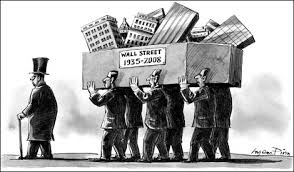
Risk Retention
The Senate bill would force lenders, with the exception of some mortgage providers, to hold a stake in debt they package or sell. The provision is designed to rein in the trade in easy credit blamed for fueling the financial crisis.
The rule would affect credit-card debt, auto loans and some mortgages. Issuers of asset-backed debt and the originators who supply them with pools of loans, including credit-card companies such as Discover Financial Services, would be forced to retain at least 5 percent of the credit risk. The goal is to align the issuers’ interests with those of the investors who buy their financial products.
Lawmakers granted an exemption for most mortgage lenders after lobbying by small mortgage brokers and community banks, who said forcing big lenders such as Bank of America to keep loans on the books would tie up capital and lead to higher interest rates. The exemption wouldn’t apply to mortgage pools including risky features such as negative amortization, interest-only payments and balloon payments.
Sellers of commercial mortgage-backed securities won language that gives regulators flexibility to tailor risk- retention rules to specific products. Regulators could set underwriting standards as a form of risk retention, for example.
“Mandating additional one-size-fits-all risk retention would have only further destabilized the already fragile real estate markets,” said Robert Story Jr., chairman of the Mortgage Bankers Association.
Insurance Industry
Senators deferred action on a proposal to exempt insurers from a provision that would bar financial firms from hedging and proprietary trading with assets in their general accounts.
Senator Scott Brown, a Massachusetts Republican, joined Democrats in approving the broader financial-rules overhaul after receiving assurances that his proposed changes would be considered in the Senate-House conference on the bill. Brown said subjecting insurers and custody banks to Volcker rule restrictions would place an undue burden on those companies.
Insurers’ “fundamental business model requires them to invest the company’s own money in order to ensure a healthy portfolio for paying customer benefits and prudently running the company,” Frank Keating, chief executive officer of the American Council of Life Insurers, wrote in an April 19 letter to the Senate.
Senators voted to include a measure that will impose collateral requirements on previously written derivatives.
Warren Buffett’s Berkshire Hathaway Inc., which has more than $60 billion at risk on derivative bets tied to stock indexes, municipal bonds and corporate debt, had requested that legislation shield contracts written in the past. David Sokol, one of Buffett’s top executives, told CNBC in April that the company wants to maintain the “sanctity of contract.”
The Senate’s derivatives proposal was designed to ensure there is cash backing bets on the direction of stocks and commodities prices. AIG needed a $182.3 billion U.S. bailout in 2008 after failing to reserve for obligations on credit-default swaps tied to subprime home loans.
The bill includes a measure creating a federal insurance office through the Treasury Department that would have the power to negotiate international treaties covering the industry.
Reinsurers based in Europe, including Ace Ltd., Lloyd’s of London and Swiss Reinsurance Co., said a federal regulator should be able to override state rules that force the companies to post more collateral than U.S.-based competitors.
“We believe that collateral should be based on the financial strength of a reinsurer, not its place of domicile,” Ace CEO Evan Greenberg said in an e-mailed statement in April.
--With assistance from Phil Mattingly, Alan Bjerga, Alison Vekshin, Lorraine Woellert, Craig Torres, Jesse Westbrook and Robert Schmidt in Washington; Rick Green, Asjylyn Loder, Peter Eichenbaum and Sapna Maheshwari in New York; and Josh Friedman in Los Angeles. Editors: Lawrence Roberts, Dan Reichl.To contact the editor responsible for this story: Lawrence Roberts at lroberts13@bloomberg.net









